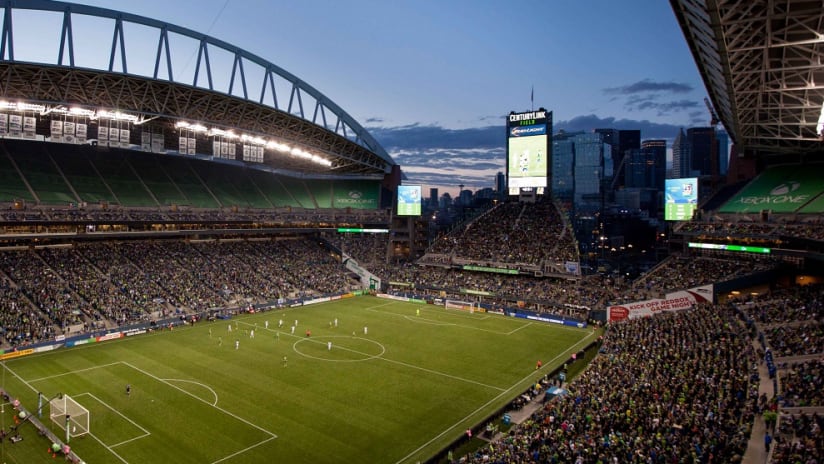SEATTLE—Following Wednesday’s announcement that the United States, Canada and Mexico had won the right to host the 2026 FIFA World Cup, Adrian Hanauer figured there was no time to waste in making his pitch as to why Seattle should be selected as one of the host cities.
On the heels of Wednesday morning’s vote, the Seattle Sounders majority owner hosted a press conference at The NINETY, the Sounders’ front-office headquarters in downtown Seattle, flanked by a four-person panel headlined by Seattle Mayor Jenny Durkan, Washington State Public Stadium Authority Board Chair Fred Mendoza, King County executive Dow Constantine and COO of the Seattle Seahawks and First & Goal Inc. Chuck Arnold.
It might seem early to start making a case for an event that isn’t taking place for eight years. But when it comes to hosting a World Cup, the logistics are notoriously daunting. According to Durkan, however, Seattle offers a unique level of preparedness to take on those hurdles, including an established soccer culture through the Sounders and a massive venue in CenturyLink Field.
“If you look at the history of the World Cup and where it gets awarded, when it was awarded to Russia and Qatar for example, they’re far behind where we are in Seattle, both in terms of a soccer culture and having facilities,” Durkan said. “So I’m very confident that we’ll be where we need to be.”
On its face, CenturyLink would certainly seem to be an ideal venue to host World Cup matches, with the 70,000-seat capacity making it big enough to accommodate the droves of fans that would be in attendance.
The main question would be the playing surface, as the Sounders play on artificial turf.
Hanauer called that a ‘non-issue,’ citing the constantly evolving technology when it comes to laying grass surfaces, and noting that technology only figures to be drastically improved by 2026. Assuming that holds true, the size and architecture of CenturyLink make it an ideal host venue, Mendoza said.
“CenturyLink Field was intentionally designed and constructed for World Cup soccer. We determined that from the beginning,” Mendoza said. “We took the designs to a World Cup architect. The building that you have today is a world-class World Cup facility. When we overlay it with natural [grass] there aren’t any better soccer facilities in this country.”
There are also cost and transportation issues that need to be ironed out, but Hanauer echoed Durkan’s assertion that Seattle is actually ahead of where other host locations have been in terms of being prepared to take on those hurdles.
“The infrastructure is effectively here,” Hanauer said. “There are no stadiums that are going to be built. There are no new airports that are going to be built. There are no new transportation systems that are going to be built. So, the cost structure should be lower which should ultimately end up in a very profitable World Cup.”
Added Constantine: “We’re already making a lot of the investments we need to make in order to be able to host an event on this scale.”
There’s a long way to go before the decision is made, and Seattle also faces some stiff competition. There are currently 17 US cities on the shortlist, which will eventually be whittled down to 10. When that time does come, however, Mendoza said the city plans on being ready.
“I have just one message to FIFA,” Mendoza said. “We’re ready. We will be ready. So please RSVP that you’re coming.”











